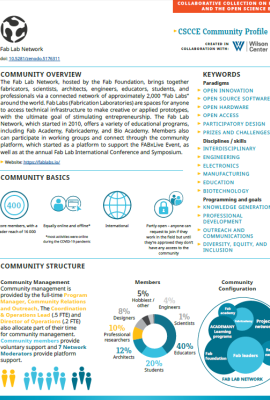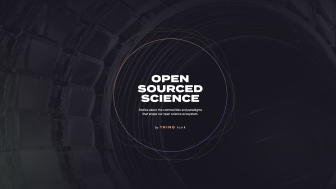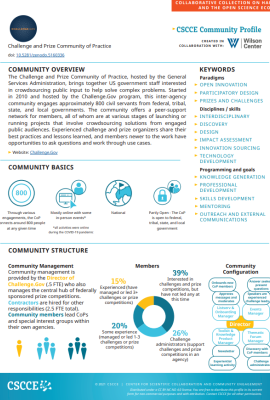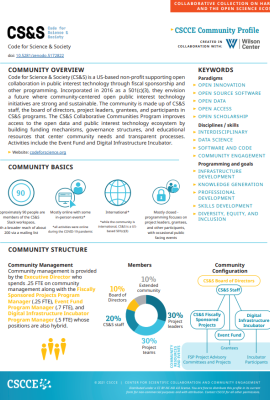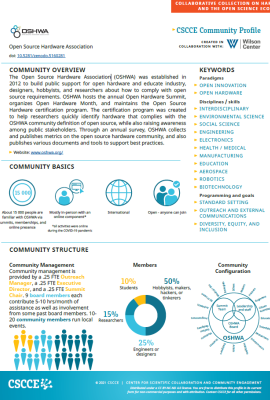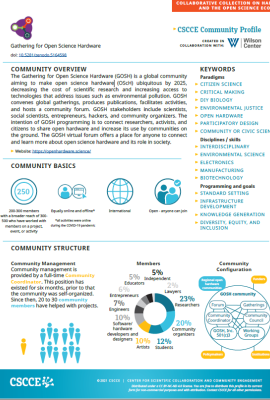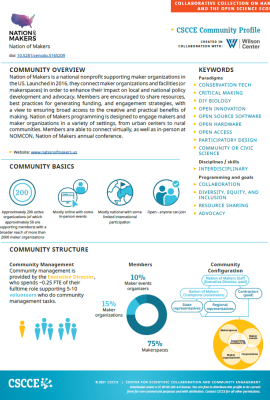Scientific Community Profiles
Snapshots of Communities in the Hardware and Open Science Ecosystem

Created through a collaboration with the Center for Scientific Collaboration and Community Engagement (CSCCE) these scientific community profiles are snapshots of converging communities in the open science ecosystem that are working to open the process and products of science.
To better understand how open hardware and adjacent communities converge, we (the Science and Technology Innovation Program at the Wilson Center) worked with the Center for Scientific Collaboration and Community Engagement (CSCCE) and community managers on a special collection featuring organizations relevant to low-cost and open hardware from a range of perspectives. The profiles document how these communities function, and help situate low-cost and open hardware within the context of other open movements.
Spotlight Projects
Background on the Project
-
Making the Profiles
-
Communities Represented
-
Communities and Paradigms
-
Related Work
This set of profiles is a collaboration between the Wilson Center's THING Tank and the Center for Scientific Collaboration and Community Engagement (CSCCE). Subscribe to our email lists to get notified as more profiles are added.
Subscribe to THING Tank Emails


